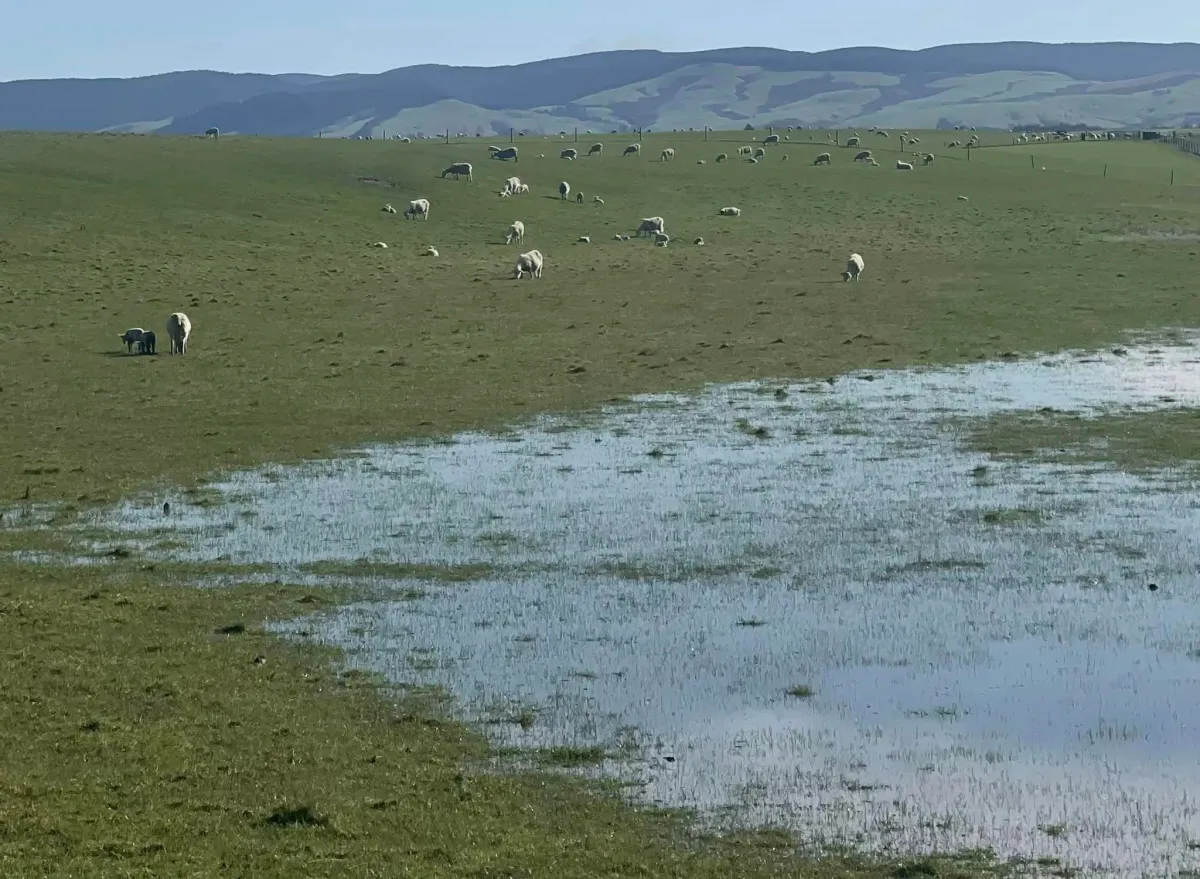Southland farmers are grappling with an unusually wet spring, which has brought higher lamb death rates and low feed supplies. Persistent rain since August has made it difficult to manage paddocks, sow spring crops, and care for livestock.
Jason Herrick, president of Southland’s Federated Farmers, described the situation as relentless. "Obviously it’s not giving the animals any rest and recovery, getting them on dry ground is a real challenge," he said. He also noted that surplus feed supplies, previously sent to drier parts of the South Island, have been exhausted. "Everyone’s doing the best they can to get through," he added.
NZAGRI, a skin processor, reported a significant rise in lamb deaths due to both the rain and a cold snap, processing double the usual number of lambs for this time of year. Farmers are now buying in supplementary feed to maintain their stock, but supplies are tight.
Arable farmers are also feeling the pressure. The wet ground has delayed spring crop planting, affecting profitability. “They need to get the crops in the ground soon so they can get the best bang for their buck, but the wet weather is making that really hard,” Herrick explained. While alternative crops can be planted, they are less profitable, causing further financial strain.
Despite some positive forecasts, farmers are still in desperate need of sun and norwest winds to dry out paddocks.
As calving finishes and lambing begins, stress levels are high. Guy Michaels, regional manager for DairyNZ, acknowledged the difficulty rural communities face during this period. "Dairy farmers are looking over the fence particularly concerned about our sheep and beef colleagues starting to get into lambing—and it’s an extra difficult time managing that situation,” he said.
The heavy rain has not only affected livestock health but also damaged pastures. Michaels emphasised that supplementary feed stocks are running low, and farmers should secure extra feed sooner rather than later. “The bulk of it has gone out, so we’d urge anybody considering extra feed to look sooner rather than later just to book it in.”
As farmers continue to battle tough conditions, the focus will remain on maintaining animal health and preventing further pasture damage.


